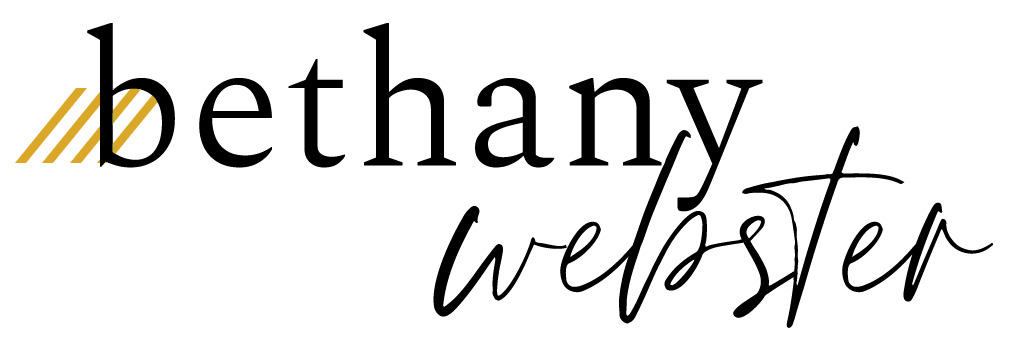Is your “inner critic” the voice of your mother?

Why the early messages we received from our mothers feel safe, comforting, and familiar, even if they may actually be false, negative, or even cruel.
The topic of how to tame the inner critic has long been popular in the personal development space. But an important point is often overlooked in the conversation: The voice of our inner critic is often our mother’s voice.
This fact can feel taboo and triggering to confront, but we must do so if we are to truly let go of the unconscious programming we picked up in childhood that still holds us back today.
We are predisposed to unconsciously bond with the voice of our mothers and default back to it, especially in times of stress, in an attempt to feel mothered, safe and secure. This is the case even if her voice was negative, undermining, or even malevolent. This article explores why that is and how we can unhook from the self-sabotage that is at the core of the Mother Wound and step into more individuated sovereignty as women.
For women in particular, if our mother’s voice was regularly harsh, critical, or berating, it can reiterate society’s messages that we as women are not enough, that we are shameful and somehow to blame for our suffering.
Have you ever noticed that the voice of self-doubt may feel very familiar? It can be the voice of your mother who may have said things like:
- Who do you think you are?
- Don’t be selfish!
- You’re asking for too much.
- Don’t get your hopes up.
- You’re not good enough. That’s not for you.
- Other people have it worse. Suck it up.
- Don’t you dare speak up for yourself.
- It’s safer to settle for what you have.
- You have to please people to get them to like you.
- You’re ugly when you’re angry.
- Don’t be too happy with yourself.
- You’re too intense!
- I’ve done so much for you. You owe me.
- You should do THIS.
- You should never do THAT.
- I’m your mother, so I get to say or do whatever I want to you.
- Neglecting yourself is virtuous.
- You’re being selfish when you say what you want or need
How the “invisible fence” is holding you back
If we receive these negative messages regularly from our mothers as kids, and in the absence of a significant counter-balance of consistent, loving support from her, these negative messages can dominate our inner narrative as adults.
The central underlying theme of these messages is “There is something wrong with me.”
Even though we have grown up and lead adult lives, perhaps even being on relatively good terms with our mothers, these messages remain active in our minds, functioning much like a kind of “invisible fence.” This unseen “gatekeeper” keeps us confined in certain limiting thoughts, behaviors, and circumstances, with a fearful trepidation of going outside these lines. This “inner atmosphere” of self-criticism can feel so routine that we hardly even notice it.
It may feel difficult to digest, but it makes sense: How we were spoken to as children by our primary caregiver becomes the tone and tenor of how we talk to ourselves as adults.
If our mothers were regularly harsh, critical, negative, or even cruel, then we can expect that tone to show up automatically in our inner monologue, what we say to ourselves about ourselves, others, and the world at large.
And to make it more complex, our mothers were often saying things to us in much the same ways that they were spoken to by their mothers. Much of which is unconscious and not necessarily intentional, but deeply harmful nonetheless.
Your Mother’s critical voice may show up during critical junctures in your life as an adult
- When trying to go for more in your life, such as a new job or a new relationship.
- When experiencing some kind of loss, such as a divorce, or conflict with friends or spouse.
- When attempting new things, such as prioritizing your health, starting a new business, trying to get pregnant, or going for a degree.
- When feeling vulnerable, such as going through an illness, giving birth, or moving to a new city.
These are situations in which we are at a horizon of something new or challenging, which can naturally evoke feelings of fear. Because our amygdala is activated in these novel situations, we are unconsciously predisposed to draw from the earliest and most dominant messages to ensure our survival and adapt to any perceived threats to our wellbeing.
Rather than being supportive, for many of us, those early, dominant messages from our mothers cast doubt upon our worth and abilities, especially for those of us who grew up with mothers who were themselves trauma survivors, depressed, unhappy, experiencing financial hardship or have some degree of mental illness.
At the times we most need to feel strong, capable, and confident to rise to these new challenges, instead, we may unconsciously regress to some measure of feeling powerless, unsafe, and overwhelmed with self-doubt because that’s the main message we got from our mothers.
We may revert to the very messages that actually undermine our goals.
Our mother’s critical voice need not necessarily be even that strong or over-powering. It could be much more subtle, such as simply feeling low, experiencing a sad sense of being alone, a background feeling of self-recrimination, or chronic self-doubt. Even more subtle, it could manifest under the surface of our awareness, such as having a hard time sleeping, feeling depressed or finding yourself emotionally eating, or making impulsive financial choices.
If your mother was negative towards you much of the time growing up, we unconsciously hang on to this negative self-talk as an unconscious way of feeling mothered. If the primary bond was forged in some degree of negativity, we will hold onto negativity as a form of “mother”. This is all unconscious behavior until we take the time to make it conscious.
We must see our mother through rose-tinted glasses to survive
If you can relate to all the above, know that it’s not your fault, and you’re not alone. It’s totally normal to struggle with this. Most women do to some degree.
As little girls with limited cognitive development, we took what our mothers said to us as ultimate “Truth,” and we trusted that her beliefs accurately reflected objective “Reality.” We weren’t yet able to discern or evaluate what we were told or see how it was actually her truth, her reality. We had no choice but to absorb what she said, internalize it and comply with it to gain her approval. Her lens became our lens.
For children, maternal approval is equivalent to survival, and preserving that maternal bond at all costs is a biological imperative and part of growing up. We may have had to project benevolence onto things our mother said or did that were, in truth, neglectful or harmful. We had to see our mothers with rose-tinted glasses. That’s normal for a child.
However, as adult women, if we are to thrive, be our best selves, and live fulfilling, meaningful lives, we need to shed the shame and “the shoulds” that we have inherited and internalized from our mothers in the earliest years of our lives. This is crucial to finding what is our true authentic voice and embodying that for our own good and that of others.
The way our mothers mirrored back to us what they saw in us shapes the lens through which a child sees herself and the world. However, as adult women, we can finally understand that the lens through which your mother saw you was largely colored and biased based on HER history, wounds, traumas, and biases.
A child sees her mother through rose-tinted lenses because she needs to bond in order to survive. But a wounded mother sees her daughter through some degree of darkened lenses due to her own unhealed traumatic residues and trauma-based reactions from her history, which have nothing to do with her child.
What makes this most insidious is that the early messages we received from our mothers feel safe, comforting, and familiar, even if they may actually be false, harsh, critical, or even cruel.
Your inner child needs to bond with your inner adult more than your actual mother
The inner critic can act as a kind of stand-in for the mother. We are incentivized to listen to her, believe her negative dictums and confirm her beliefs as truth. Left unexamined, the critical voice of our mothers can be a self-fulfilling prophecy that we unwittingly carry out for decades of our lives, feeling stuck, going in circles without realizing the unconscious forces that are actively keeping our suffering in place.
Our inner child, which is part of our unconscious mind, can actually be at odds with our adult, conscious mind. This can manifest in a kind of push-pull, one step forward–two steps back pattern in different areas of our lives.
As a form of survival, our system is set up to reach for this early programming for support in moments of stress, even if it exacerbates our stress. Being aware of this tendency is crucial to recognize it and anchor yourself in what is true, accurate, and empowering instead. That is how actual lasting personal change occurs; the transfer of your inner child’s attachment must move from your mother’s beliefs to the beliefs of your empowered Adult self (or inner mother).
The inner child needs to bond with your Adult Self, the inner mother part of you MORE deeply than your actual mother. This is how differentiation and self-actualization occur. Otherwise, your mother’s beliefs, patterns, and choices will operate like a powerful “default mode” in your system.
In a healthy mother-daughter relationship, this individuation process happens naturally and without too much stress or turbulence for either mom or daughter. But when there is some measure of trauma, neglect, or abuse, the individuation process can be a brutal battleground within a daughter’s mind to claim her right to her own separate life.
Your mother’s truth and way of seeing things need not be YOUR truth. Her history need not be your destiny.
This doesn’t mean we are judging, rejecting, or feeling superior to our mothers. It simply means we are claiming our birthright to be different and live as separate individuals, embracing our own authenticity and sovereignty as women. Unfortunately, some mothers interpret their daughters’ desire to be different from her as a kind of rejection or betrayal of her, which can add guilt to be yet another obstacle to the individuation process.
Separating out what is true for you from what your mother believes is a crucial part of growing up. But many of us have been told the opposite, which is that to have differing world-views, thoughts, needs, and dreams from our mothers is somehow a sign of ingratitude and a profound betrayal of her.
Many of us have been taught that loving our aging mothers requires us to reflect back to her what she wants to see and to never cause her an emotional upset, lest we be labeled ungrateful. In this way, we are taught to allow our mothers to become a kind of prison guard, keeping our true selves under lock and key and falsely seeing that as our loyal obligation to her as a daughter.
The distress of the inner kids creates turbulence in our system
- The inner child, the younger part of us, wants mommy’s approval and will attempt to be even more compliant to gain her love. She longs to be held, to belong, and avoids any conflict. She hangs onto breadcrumbs of hope that mom can change into a more loving version by increasing her willingness to comply, serve and obey her.
- The inner teenager, the older child in us, however, feels defiant and enraged because she feels unseen, unheard, and unloved for her true self. She is angry that being loved by mom requires some degree of forsaking her true self.
In other words, these two parts of ourselves, the inner child and inner teenager, can be actively at odds with one another, which creates tension in our self-system. The inner child’s impulse to stay safe is to be compliant, while the inner teen’s impulse is to fight back and be defiant.
The inner child and inner teen have differing developmental needs from the Adult Self, and without a practice of inner mothering, we experience this tension in different ways:
- When the inner child is distressed, we usually feel low, stuck or depressed or high-anxiety
- When the inner teen is more actively distressed, we may experience acting out through rebellious, self-sabotaging, or impulsive behavior
When all of this is unconscious, we may fluctuate between the two in the course of an hour or a day.
This tension is created because the inner child and inner teen are still working to either please the inner critic (or maternal introject) or rebel against her, neither of which creates resolution. The tension will just go dormant to rise up again later. What releases the tension is for the Adult Self to address the younger parts of herself and fill the “mother gap” of what they needed from their mother but never received from her.
What is the Mother Gap?
The Mother Gap is the gap between what we needed from our mothers but didn’t receive for whatever reason. This can cause problems as adults because we tend to look outside of ourselves to fill this gap. It keeps us externally oriented, unconsciously placing our need for validation, respect, and feeling worthy onto other people and external circumstances, much of which we have little control over. This replicates that original powerlessness and confusion we felt as children.
Filling the Mother Gap of our inner kids requires understanding their differing needs:
- Needs of inner child: Needing to feel special, loved, important, and precious to the parent
- Needs of inner teen: Needing to feel respected, listened to, accepted for who she is, to make mistakes without shame, and have the freedom to be an individual
Filling the mother gap requires differentiating from our mothers otherwise, we actually replicate internally the negative messages we received from her.
What did you need from your mother that you didn’t receive as a child and as a teen? What loving messages did you long for? Start giving those messages to these parts of yourself consistently. It takes time for the inner kids to trust the adult self and see you as a reliable “inner mother,” but that is what must happen to really break the cycle and make it safe to be truly happy, free, and authentically yourself.
Differentiating from Mother allows you to become Sovereign over your own “Internal Climate” and decide what is true and right for you.
Inner Mothering helps the inner kids bond with a more loving truth and to eventually discard inherited beliefs that aren’t true for you.
Inner mothering creates inner harmony, reducing the turbulence of the inner kids and clears the way for you to be genuinely sovereign in every area of your life.
Some tips to get started on healing self-sabotage
- Recognize the unconscious, false, negative beliefs that you inherited from your mother
- See these beliefs clearly as her truth, her reality, and that they don’t actually belong to you.
- Empathize with your inner child’s impulse to listen to these early, negative messages as a way to try to gain love, safety, and approval.
- Empathize to your inner child that now YOU are here as her Adult Self to keep her safe and bring new loving, empowering truths that your mom was unable to.
- Build trust: Show up regularly and consistently as a loving inner mother to provide a new vision of life that feels comforting, safe, and positive. Nurture her by filling the Mother Gap.
It takes persistence and commitment to shift these core beliefs from childhood and to help your inner child trust these new empowering beliefs and choices instead.
Healing the Mother Wound and Inner Mothering is what allows us to break that patriarchal legacy in our families and truly individuate, for the good of ourselves, our families, and the earth.
Differentiating from our mothers’ beliefs, values and patterns is part of growing up but can be very difficult for women. Patriarchal culture blocks this natural developmental process from happening and creates shame in the adult daughter attempting to heal and evolve. It blocks it through the cultural messages about how a dutiful daughter must never question her mother or challenge her parental supremacy by having differing beliefs and values.
We can’t be truly empowered and liberated if the inner child still sees her safety as compliance with patriarchal messages our mother passed down to us that have our subjugation at their core.
Individuation requires that we mother ourselves into our own sovereignty. Inner mothering is the practice that heals the Mother Wound and allows us to be the women we want to be.
We are living in a time when we need more people to question the status quo and innovate new ways of being and living. Are you ready to break the cycle?
If you are, I invite you to learn more about my best-selling online course Healing the Mother Wound, here.




